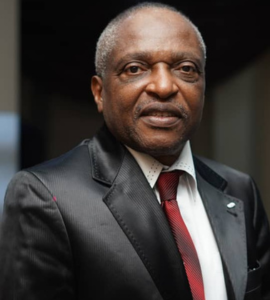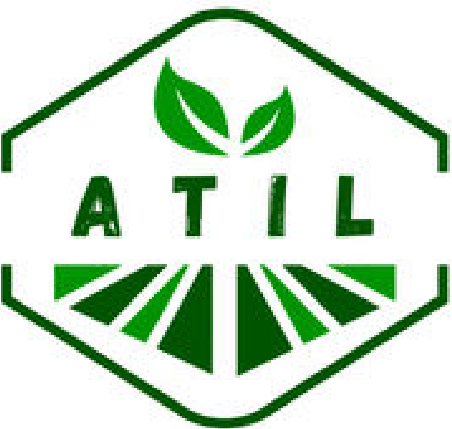Prof. Hilary Inyang
Chairman, Board of Directors

Prof. Hilary “BrownBard” Inyang is a geoenvironmental scientist, science diplomat and philosopher-poet who has recently served as US Ambassador’s Distinguished Scholar to Ethiopia. He is currently the Founding Chairman of the Global Institute for Sustainable Development, Advanced Analyses and Design (GISDAAD) that is headquartered in Concord, North Carolina, USA. He was a member of the Education Caucus of the United Nations Commission on Sustainable Development and served for two terms (1997-2001) as Chair of the Science Advisory Board (Engineering Committee) of the United States Environmental Protection Agency (USEPA) in Washington DC, USA, and a member of the United States National Advisory Council on Environmental Policy and Technology (NACEPT) – Effluent Guidelines Committee. He also served in 2017 as a reviewer for the Inergovernmental Panel on Climate Change (IPCC).
He is a former Duke Energy Distinguished Professor and Director of the Global Institute of Energy and Environmental Systems of the University of North Carolina, Charlotte, USA; former DuPont Professor of Environmental Engineering and Science, and Director of CEEST, University of Massachusetts, Lowell, USA; former President/Vice Chancellor of the African University of Science and Technology, Abuja, Nigeria; former President/Vice Chancellor of the Botswana International University of Science and Technology, Palapye, Botswana; former Visiting Professor of Geoenvironmental Engineering at the Indian Institute of Technology-Bombay (IIT-B), Mumbai, India, following a recent role as a Visiting International Research Fellow at South Africa’s Human Sciences Research Council (HSRC); and Adjunct Professor of Humanities at the University of New Delhi, India. Prof. Inyang serves currently as Honorary Professor of the China University of Mining Technology (CUMT), Xuzhou, China (since 2004), as well as Concurrent Professor at Nanjing University, Nanjing, China (since 1998). Prof. Inyang also held faculty positions at Purdue University, West Lafayette, Indiana, USA; George Washington University, Washington DC, USA; and the University of Wisconsin – Platteville where he started his academic career as an Assistant Professor in 1988.
He chaired the Steering Committee of the Africa Science Plans under the auspices of the International Council for Science, UNESCO and the United Nations Economic Commission for Africa. He also chaired the 2023 Global Geoenvironmental Forum at the Indian Institute of Technology, Bombay (IIT-B), Mumbai, India as well as the 2024 AAS-EU Nile River Conflict Resolution Forum in Nairobi, Kenya. From 2008 to 2013, Prof. Inyang served as the President of the International Society for Environmental Geotechnology (ISEG) and the Global Alliance for Disaster Reduction (GADR) that comprised more than 400 organizations worldwide, and led the foundation for the creation of the United Nations International Strategy for Disaster Reduction (ISDR). He is still ISEG’s Honorary President for a term that would end in 2026. Prof. Inyang is also a science-diplomat who has held knowledge framing and leadership positions for the Royal Society of Edinburgh (RSE)/African Academy of Sciences (AAS) engagement program as well as the Swiss-Africa Science Diplomacy program (2023/2024). He served as Educational Testing Service (Princeton, New Jersey, USA), Development Committee member for AP Environmental Science, within a parent program covering about 750,000 students in 13,000 high schools in more than 60 countries.
Prof. Inyang is a frequent developer of analytical models and technical systems implementation in various areas of geoenvironmental engineering. Prof. Inyang, the globally renowned expeditionist and researcher, is honoured for developing contaminant emission models for materials and configuring innovative systems for contaminant containment to reduce environmental and human health risks in Nigeria and worldwide, in climatic zones ranging from the hot/humid tropics to the frigid Arctic. In 2022, Prof. Inyang developed the Climate Change Jurisdictional Vulnerability Indexing (CC-JVI) system in collaboration with Prof. Charles Hongoro of South Africa’s Human Sciences Research Council (HSRC), Pretoria, South Africa. The system is framed for application in various regions of the world with extension assessment of climate resilience of jurisdictions. He is the developer of the GEORAD Barrier Technology and the associated GRYBCAM Analytical Model for controlling damaging radiation emission from radioactive waste sites; chemodynamic models for screening of natural, synthetic and cassava-derived polymers for control of dust emissions from polluted sites worldwide; an innovative system for quantification of environmental sensitivity which has found applications in several countries; and advancement of energy infrastructure sustainability through collaborative development of transformer oil aging models, innovative production of hydrogen fuel from water by plasma electrolysis, and innovative modeling of rock fragmentation techniques documented as the TEPLER Computer Model for laying of pipelines, communication cables and utility conduits with applications worldwide.
He has authored/co-authored more than 300 research articles, book chapters, federal design manuals and the seminal textbook, Geoenvironmental Engineering: principles and applications, published by Marcel Dekker (ISBN: 0-8247-0045-7) in 2000. His research and professional focus are on geoenvironmental processes and quantitative indexing of climate change vulnerability and resilience; contaminant leaching and dusting from materials; waste containment systems and materials for barriers; radiation transport in geomedia; contaminant exposure/ecological/human health nexus; geomaterial excavation system for energy and underground space; energy systems and geohazards. He is also active in formulation of science policies, research and educational frameworks for national and regional sustainable development. He was the Editor-in-Chief of the Journal of Energy Engineering of the American Society of Civil Engineers (ASCE), an associate editor/editorial board member of 27 refereed international journals and contributing editor of three books, including the United Nations Encyclopedia of Life Support Systems (Environmental Monitoring Section). He is the primary author of the UNESCO Guidebook on Scientific Writing (2022) and the Nigeria’s Science, Technology and Innovation Roadmap (NSTIR) 2017-2030. Professor Inyang has served on more than 200 technical and policy panels of governments and professional societies, and has given more than 130 invited speeches and presentations on a variety of technical and policy issues at many institutions and agencies in several countries, including the Goldberg-Zoino Lecture at MIT (1994), the AMOCO Foundation Lecture at Iowa State university (1996), the ALCOA Endowed Lecture at Carnegie-Mellon University (2002), and addresses at the Parliament of Switzerland in Bern (2001) and Nigerian Senate Environmental Committee (2008). He has chaired/co-chaired international conferences in Korea, Japan, Turkey, the United States, Brazil, Finland, Canada, Botswana, Ethiopia, Slovenia, Ghana, China and Nigeria.
Professor Inyang is a regular contributor to Nigeria’s environmental science programs, developed the FCT Environmental Management Framework, and the NOSDRA National Technical Guidance Manual for Oil Contaminated Soil and Oily Waste Management under the auspices of the UNDP. Prof. Inyang authored Nigeria’s Federal Codes of Standards for Integrated Solid Waste Management, and the associated Technical Guidance Manual for Landfill Design. For more than 15 years, before and during his service as the President of the African University of Science and Technology (AUST) in Abuja, Nigeria, he has analyzed Nigeria’s environmental problems as an advisor to the Nigerian Senate Committee on Environment and Ecology, culminating in his development and presentation of a framework for enhancement of Nigeria’s environmental security to the Nigerian Senate as a keynote speaker at its 2012 Senate Retreat in Uyo, Nigeria. He was a resource person on environmental and related energy issues at the convening of the expert team in Lagos in 2011 to revise Nigeria’s National Science and Technology Policy. He is the primary author of Nigeria’s National Science, Technology and Innovation Roadmap (NSTIR) 2017-2030 (approved unanimously by Nigeria’s Federal Executive Council in 2017) and was the primary analytical driver of the conversion of Nigeria’s defunct Federal Environmental Protection Agency (FEPA) to the current Federal Ministry of Environment in June, 1999 as well as establishment of the current Nigerian National Oil Spill Detection, and Regulatory Agency (NOSDRA) in 2006.
He has performed field research expeditions in numerous countries e.g. China, Siberia (Russia), Brazilian Minas Gerais Region and Slovenia on mining, Alaska and Nigeria on climate change and oil spills respectively, Japan, Finland and Korea on waste management, Taiwan and Canada on rock fragmentation, and Switzerland, Germany and Italy on science policy. He has performed numerous research projects under the sponsorship of several agencies and corporations, including the US National Research Foundation, Sandia National Laboratories (USA), General Electric Corporation, Duke Energy Corporation, US Environmental Protection Agency, United Nations Development Program (UNDP), UNESCO and the African Development Bank. He is a 1996 US National Research Council Young Investigator selectee. For his research contributions to advances in geoenvironmental science and engineering, professional practice in many countries, and public policies on energy and environmental issues, he has received several professional honors, including about 25 prizes/awards.
On October 2, 2002, he was honored in Washington, DC at a ceremony organized by the US Government to honor 10 environmental scientists for technical contributions to the United States through the USEPA.
He received the 2006 US Congressional Commendation through the Office of US Congresswoman Barbabra Lee; and Commendation by the Government of the State of Massachusetts, USA in Boston, MA, USA in 1999. Other honors include his selection as a Fellow of the Geological Society of London, the 1999 Chancellor’s Medal for Distinguished Public Service of the University of Massachusetts, Lowell; 2001 Swiss Forum Fellow selection by the American Association for the Advancement of Science; the 1996 US National Research Council Young Investigator Selection; 2003 Aspen Institute Fellowship selectee; 1992 Eisenhower-Jennings Randolph Fellowship Award of the International Public Works Federation/World Affairs Institute that was instituted to honor the international achievements of former U.S. President Dwight D. Eisenhower; the 1991 American Association for the Advancement of Science/USEPA Environmental Science and Engineering Fellowship; and election (by eminence) as a Board-Certified Member (BCEEM) of the American Academy of Environmental Engineers (2006). He is the winner of the 2013 Nigerian National Order of Merit, NNOM (Intellectual Prize) for Engineering and Technology; and the 2015 Education Leadership Award given by the Global Advisory Council of the World Education Congress, Mumbai, India and is a Fellow of both the African Academy of Science, the Geological Society of London and the New York Academy of Sciences (1991).
Prof. Inyang is a poet who is currently completing a 10-year long BrownBard Poetry Series, comprising more than 8,000 poems in 50 books to be released in 2026 as the most profound themed poetry series by a single author in history. Prof. Inyang holds a Ph.D. (1989) with a double major in Geotechnical Engineering and Materials, and a minor in Mineral Resources from Iowa State University, Ames, Iowa; an M.S. (1986) and B.S (1985) in Civil Engineering from North Dakota State University, Fargo, North Dakota, USA; and a B.Sc. (Honors) (1981) in Geology from the University of Calabar, Nigeria. Prof. Inyang is listed in “Who’s Who in the World” (2000 Millennium Edition), International Book of Honor (Second Edition, American Biographical Institute), and Marquis Who’s Who in the Frontiers of Science and Technology (1985 Edition). He is a public intellectual who lectures frequently on social media platforms, radio and television in many countries, and is the subject of several television and newsprint documentaries and interviews.
